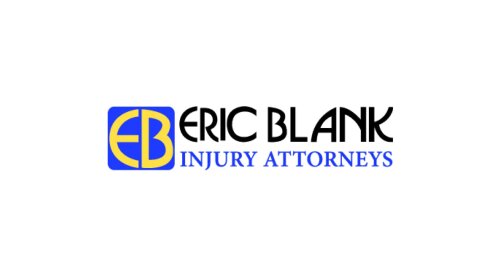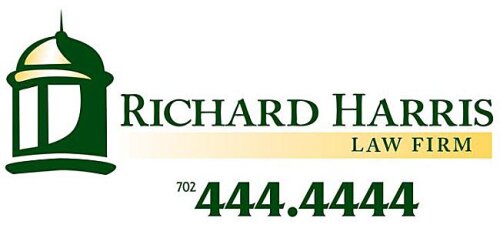Best Marine Insurance Lawyers in Las Vegas
Share your needs with us, get contacted by law firms.
Free. Takes 2 min.
List of the best lawyers in Las Vegas, United States
About Marine Insurance Law in Las Vegas, United States
Marine insurance covers loss and liability that arise from the use, ownership, carriage, and operation of vessels and property related to waterways. In Las Vegas, most marine insurance issues involve recreational boats, personal watercraft, houseboats, and inland-marine risks such as cargo-in-transit, contractors equipment, and specialized property floaters. Although Las Vegas is not a coastal city, nearby waters - including Lake Mead and the Colorado River - generate claims that raise both state insurance law and maritime legal concepts. Marine claims in this region can therefore implicate a mix of Nevada insurance regulation, local boating laws, and, in certain cases, federal maritime or admiralty principles.
Why You May Need a Lawyer
You may need legal help with marine insurance matters when the facts or legal issues are beyond routine claims handling. Common situations include:
- A denied or underpaid insurance claim where the insurer says damage, loss, or liability is excluded.
- Disputes over policy language - for example, whether a hull policy, liability coverage, or an inland-marine floater applies.
- Complex liability questions from collisions, personal injury, or property damage involving third parties.
- Subrogation issues after a loss - when your insurer seeks to recover from a third party, or when you want to pursue recovery yourself.
- Salvage, wreck removal, or environmental claims that involve specialized maritime law principles.
- Coverage gaps when you finance, charter, or store a vessel - lenders, marinas, or charter operators may require specific coverages.
- Bad faith or unfair-claims handling by an insurer, including unreasonable delays, refusals, or low valuations.
- Situations that may involve federal admiralty jurisdiction - for example, commercial operations on navigable waters or serious personal-injury claims that could trigger maritime statutes.
Local Laws Overview
Key legal aspects and institutions relevant to marine insurance in Las Vegas include the following:
- Nevada insurance regulation - Insurance companies and insurance products sold in Nevada are regulated by the Nevada Division of Insurance. This office oversees licensing, market conduct, rates, consumer complaints, and certain policy-form approvals.
- Boating and vessel rules - Boating safety, registration, and equipment requirements on Lake Mead, the Colorado River, and other Nevada waters are enforced by state or federal agencies. Nevada Department of Wildlife - Boating may regulate registration and safety rules for recreational craft. Federal safety and pollution rules can apply on larger navigable waterways.
- Admiralty and maritime law - Maritime doctrines apply primarily on navigable waters and to commercial maritime activities. Federal admiralty jurisdiction can govern issues such as collisions, salvage, and certain personal-injury claims. For small-scale recreational incidents on inland lakes, state law often governs unless a federal maritime nexus exists.
- Contract and insurance law - Most disputes over coverage depend on contract interpretation principles under Nevada law. Courts examine policy text, endorsements, declarations, and insureds duty-to-notify provisions.
- Requirement trends - Nevada generally does not mandate private recreational boat insurance, but lenders, marinas, charter operators, and special-use permits often require proof of specified coverages and limits.
- Time limits and procedural rules - Statutes of limitation for tort, contract, and maritime claims vary. Procedural requirements such as notice provisions, proof of loss, appraisal, and loss mitigation obligations are typically specified in policies and by statute or case law.
Frequently Asked Questions
What kinds of marine insurance are available for boat owners in Las Vegas?
Common policies include hull insurance for physical damage to the vessel, liability coverage for damage or injury caused to others, uninsured/underinsured vessel coverage, medical payments, boaters legal liability, and towing and assistance. For businesses and transported goods, inland-marine policies cover property in transit, contractor equipment floaters, and cargo coverage. Coverage depends on the insurer and the policy form.
Is boat insurance required in Nevada or Las Vegas?
Nevada generally does not require private recreational boat insurance. However, lenders, marinas, slip agreements, and charter companies commonly require insurance. If you have a mortgage, loan, or lease on a vessel, the lender will usually require hull and liability coverage and named insured provisions.
How soon do I need to report a boating incident to my insurer?
Most marine policies require prompt notice of loss or incident. What counts as prompt varies by policy language and the nature of the incident, but you should notify your insurer as soon as reasonably possible. Delays can give the insurer a basis to deny coverage if prejudice results. Preserve evidence - photos, witness names, and repair estimates - and avoid admissions of fault when speaking with other parties.
What should I do immediately after a collision or injury on the water?
Ensure safety and seek medical care if needed. Record the scene with photos and notes, exchange information with other parties, contact the appropriate emergency or law enforcement agency, and notify your insurance company. If there is pollution or a downed vessel that threatens navigation, report it to the U.S. Coast Guard or relevant authorities. Consult an attorney before signing releases or admitting fault.
My insurer denied my claim saying the loss is excluded - what are my options?
First, review the denial letter and the exact policy provision cited. Some denials can be resolved through the insurer appeal, independent appraisal, or submitting additional proof. If the insurer continues to refuse coverage, you can file a complaint with the Nevada Division of Insurance and consider hiring a lawyer to explore breach of contract or bad faith litigation and negotiate or litigate on your behalf.
Can federal maritime law apply to a boating incident on Lake Mead or the Colorado River?
Federal maritime or admiralty law applies when a claim has a sufficient connection to traditional maritime activity and occurs on navigable waters. Whether a particular lake or river incident meets that threshold depends on the facts and legal tests. For many recreational incidents, state law will control, but significant commercial operations, collisions affecting interstate navigation, or specialized maritime claims may invoke federal jurisdiction.
What is subrogation and how does it affect me after a marine claim?
Subrogation is the insurer's right to step into the insureds shoes after paying a loss and pursue recovery from a negligent third party. If your insurer pays your claim, it may pursue the responsible party for reimbursement. You must cooperate with your insurer in subrogation efforts; failing to do so can jeopardize your coverage. If you are pursuing your own recovery, discuss coordination with your insurer to avoid double recovery problems.
Who pays for salvage and wreck removal costs?
Salvage and wreck removal responsibility depends on the circumstances, vessel ownership, and applicable law. Salvage claims may be compensable under maritime salvage principles, and wreck removal can be charged against the vessel owner. Some marine policies include coverage for wreck removal and salvage expenses. Environmental cleanup costs can involve separate regulatory obligations and potential government claims.
How do policy limits and deductibles work on marine policies?
Policy limits are the maximum the insurer will pay under a coverage part for covered losses. Deductibles are amounts you must pay before the insurer pays. Marine policies often have separate limits and deductibles for hull, liability, medical payments, and other parts. Review your declarations and endorsements carefully to understand which limits apply to specific losses.
How can I find an attorney who handles marine insurance and admiralty issues in Las Vegas?
Look for attorneys with experience in maritime law, insurance coverage litigation, and personal-injury or property-damage cases involving vessels or inland-marine risks. Use the Nevada State Bar lawyer referral service, attorney directories, or ask the Nevada Division of Insurance for guidance. When you meet a lawyer, ask about relevant case experience, fees, contingency arrangements, and whether they handle both state and federal admiralty matters.
Additional Resources
Helpful organizations and agencies include:
- Nevada Division of Insurance - regulator for insurance companies, consumer complaints, and licensing.
- Nevada Department of Wildlife - oversees boating registration and safety in Nevada.
- U.S. Coast Guard and U.S. Coast Guard Auxiliary - safety guidance, reporting, and maritime enforcement on navigable waters.
- National Association of Insurance Commissioners - provides model laws and consumer education on insurance topics.
- National Marine Manufacturers Association and boating safety organizations - for safety guidance and owner resources.
- U.S. District Court for the District of Nevada - for matters that may require federal admiralty jurisdiction.
- Nevada State Bar and local lawyer referral services - to locate qualified marine insurance and maritime lawyers.
- Lake Mead National Recreation Area - local rules and reporting information for incidents on Lake Mead and nearby waters.
Next Steps
If you need legal assistance for a marine insurance issue in Las Vegas, consider the following steps:
- Preserve evidence - take photos, keep repair estimates, save correspondence with insurers, and record witness contact information.
- Review your policy - locate the declarations page, endorsements, and any applicable exclusions or notice requirements.
- Notify your insurer promptly - provide the required notice but avoid detailed admissions of fault until you have legal advice.
- Contact the proper authorities if there are injuries, pollution, or hazards to navigation.
- Document your damages - medical bills, repair invoices, loss of use costs, and receipts.
- File a consumer complaint with the Nevada Division of Insurance if you believe the insurer is acting unfairly.
- Consult a qualified attorney - bring the policy, correspondence, estimates, photos, and a timeline of events to your consultation. Ask about fee arrangements, possible remedies, likely timelines, and whether alternative dispute resolution - such as appraisal, mediation, or arbitration - is required or recommended.
- Act early - deadlines for notice, appraisal, and statutes of limitation can be strict. Talking to counsel as soon as possible helps protect your rights and preserves remedies.
These steps can help you assess coverage, protect your interests, and decide whether negotiation, regulatory complaint, or litigation is the right path. A lawyer with experience in marine insurance and admiralty issues can guide you through Nevada-specific rules and the mix of state and federal law that may affect your claim.
Lawzana helps you find the best lawyers and law firms in Las Vegas through a curated and pre-screened list of qualified legal professionals. Our platform offers rankings and detailed profiles of attorneys and law firms, allowing you to compare based on practice areas, including Marine Insurance, experience, and client feedback.
Each profile includes a description of the firm's areas of practice, client reviews, team members and partners, year of establishment, spoken languages, office locations, contact information, social media presence, and any published articles or resources. Most firms on our platform speak English and are experienced in both local and international legal matters.
Get a quote from top-rated law firms in Las Vegas, United States — quickly, securely, and without unnecessary hassle.
Disclaimer:
The information provided on this page is for general informational purposes only and does not constitute legal advice. While we strive to ensure the accuracy and relevance of the content, legal information may change over time, and interpretations of the law can vary. You should always consult with a qualified legal professional for advice specific to your situation.
We disclaim all liability for actions taken or not taken based on the content of this page. If you believe any information is incorrect or outdated, please contact us, and we will review and update it where appropriate.















